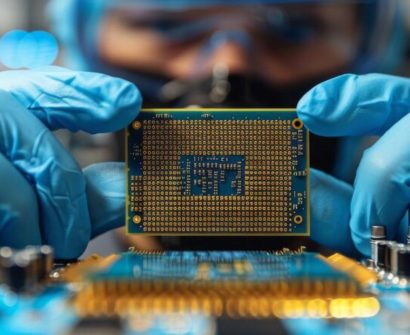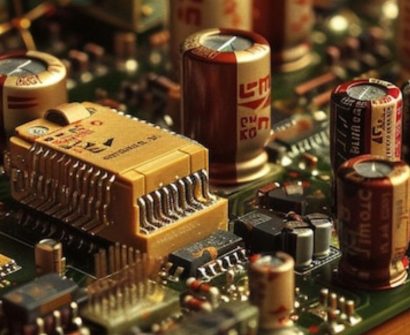Career Opportunities in VLSI and Embedded Systems: Job Roles, Skill Sets, and Certifications

In today’s tech-driven world, VLSI (Very Large Scale Integration) and Embedded Systems have become integral to the design and development of modern electronic devices. From smartphones to smart cars, both fields contribute heavily to innovations that shape our daily lives. As a result, the career opportunities in VLSI and embedded systems are immense, with a rising demand for skilled professionals to design, develop, and optimize these technologies.
In this blog post, we will explore various job roles, the essential skill sets, certifications, and salary expectations for individuals interested in pursuing a career in VLSI and embedded systems.
Career Opportunities in VLSI
The VLSI industry is crucial in designing integrated circuits (ICs) that are present in virtually every electronic device today. A career in VLSI offers exciting opportunities to work on cutting-edge technologies, such as semiconductor chips, microprocessors, and memory devices.
Job Roles in VLSI
- Front-End Design Engineer
- Responsible for the initial design of digital circuits and ICs, often working with hardware description languages (HDLs) like Verilog and VHDL.
- Verification Engineer
- Ensures the correctness of the design by developing testbenches and simulation models to validate chip functionality.
- Physical Design Engineer
- Focuses on converting logical designs into physical layouts on silicon using tools like Cadence or Synopsys.
- Design for Test (DFT) Engineer
- Creates test structures within chips that allow testing for manufacturing defects after fabrication.
- ASIC Design Engineer
- Specializes in designing Application-Specific Integrated Circuits (ASICs), which are customized for specific applications, such as mobile processors or networking chips.
- FPGA Engineer
- Works with Field-Programmable Gate Arrays (FPGAs) to develop configurable and scalable digital systems.
Skill Sets Required in VLSI
- Proficiency in Hardware Description Languages (Verilog, VHDL, SystemVerilog)
- Knowledge of EDA Tools (Electronic Design Automation), including tools from Cadence, Mentor Graphics, and Synopsys
- Understanding of Semiconductor Physics and Digital Logic Design
- Hands-on experience in Circuit Design, Synthesis, and Timing Analysis
- Strong analytical and problem-solving skills
- Ability to work on Low-Power Design techniques
Certifications in VLSI
- Certified VLSI Design Engineer (offered by various institutions)
- Cadence Training Programs for tool-specific certifications
- Synopsys Certified Professional in Design and Verification
Salary Expectations in VLSI
VLSI professionals are highly sought after, with salaries varying based on location, experience, and company. In the United States, entry-level engineers typically earn between $80,000 to $100,000 annually. With experience, mid-level engineers can earn up to $130,000, while senior-level engineers and managers may see salaries exceeding $180,000.
In countries like India, starting salaries range from INR 4 to 6 lakhs per year for fresh graduates, with experienced engineers earning up to INR 15 to 25 lakhs annually.
Career Opportunities in Embedded Systems
Embedded systems are responsible for controlling hardware and software in devices ranging from household appliances to medical devices and automobiles. Professionals in this field design systems that are efficient, reliable, and optimized for performance.
Job Roles in Embedded Systems
- Embedded Software Engineer
- Focuses on developing software to control embedded hardware, typically using programming languages like C, C++, and Python.
- Firmware Engineer
- Writes firmware that operates at the hardware level, enabling communication between software and hardware components.
- Embedded Hardware Engineer
- Works on the design and development of the physical components of embedded systems, such as sensors, actuators, and microcontrollers.
- Real-Time Systems Engineer
- Specializes in developing embedded systems that require real-time processing, such as automotive control systems or medical devices.
- IoT Developer
- Focuses on integrating embedded systems with the Internet of Things (IoT) by designing connected devices that communicate over networks.
Skill Sets Required in Embedded Systems
- Proficiency in Embedded Programming (C, C++, Python, Assembly)
- Understanding of Microcontrollers, RTOS (Real-Time Operating Systems), and Interrupt Handling
- Experience with Peripheral Interface Protocols (SPI, I2C, UART)
- Knowledge of Embedded Linux and Bare Metal Programming
- Ability to work with Sensors, Actuators, and Embedded Communication Systems
- Familiarity with Debugging Tools (GDB, JTAG, etc.)
Certifications in Embedded Systems
- Certified Embedded Systems Engineer (offered by various institutions)
- ARM Certified Engineer (for ARM-based systems)
- IEEE Embedded Systems Certification
Salary Expectations in Embedded Systems
Embedded systems professionals are in demand, especially in industries like automotive, aerospace, and consumer electronics. In the United States, entry-level salaries typically range from $70,000 to $90,000 annually. Mid-level professionals can earn up to $110,000, while senior-level roles can command salaries over $150,000.
In India, starting salaries range from INR 3 to 5 lakhs per year, with experienced professionals earning up to INR 12 to 20 lakhs annually.
Industry Demand for VLSI and Embedded Systems
Both VLSI and embedded systems are crucial for emerging technologies like 5G, AI, IoT, and automated vehicles. Companies in sectors like consumer electronics, automotive, telecommunications, and medical devices are actively seeking professionals with expertise in these fields. Global tech giants like Intel, Qualcomm, Texas Instruments, and Nvidia are continuously expanding their teams to keep up with the ever-growing demand for high-performance, low-power devices.
Conclusion
A career in VLSI and embedded systems is both rewarding and promising, offering diverse job roles, lucrative salary packages, and opportunities to work on cutting-edge technologies. The right skill sets and certifications can significantly boost your prospects in these rapidly growing fields, with demand only expected to rise as industries continue to innovate.
Also Read : fpga architecture in vlsi
To know more about VLSI Course , SuccessBridge VLSI training institute. You can begin your VLSI career by enrolling in the placement-assisted live courses available at SuccessBridge We offer various VLSI online courses. We offer VLSI Physical Design course, Design Verification course, DFT Training , Chip design course many more. Explore VLSI Courses From The Leaders In VLSI Training
If you’re passionate about designing and optimizing hardware and software systems, now is the perfect time to embark on a career in VLSI or embedded systems!
4o






